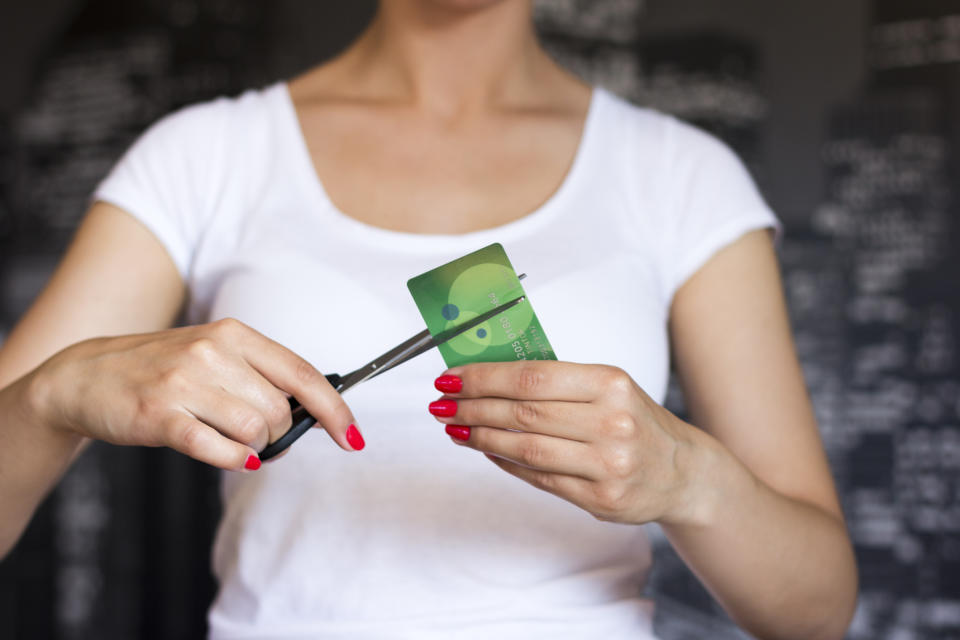How to beat debt in 2020

There’s something quite chilling about receiving a bill that you’re not quite sure how to pay.
Or perhaps your credit card payment is due, and you don’t have enough to cover it.
A question I often get asked is ‘how does that even happen?’ ‘If you don’t have the money, don’t spend it!’, they say.
Late last year I got some insight into how people get into debt trouble. A big issue is unemployment and finding yourself with less work, but another hurdle people face is the pursuit of happiness.
More from Dave Taylor: The risky 2020 economic policy that could affect you big time
More from Dave Taylor: Bank savings going nowhere? Here's how to take some control back
More from Dave Taylor: A simple guide to beating job insecurity
What do I mean by that? Well, put simply, gift giving. Parents want to give presents to their kids on Christmas day, boyfriends want to spoil their girlfriends and best friends want to show their love too.
The problem is all of these people may not actually be able to afford it. Many can’t, and they wrack up debt they won’t ultimately be able to service.
So, what’s the solution?
Let’s take a look.
Prevention is better than cure
I know drawing up a personal budget is a pain in the behind, but any pain you experience is small relative to the agony of not being able to pay a bill.
Budgets are also painfully simple to draw up. You just need two columns: revenue and expenses. Your revenue is easy to work – it’s your income.
Expenses are a little more tricky. So, here’s one way to tackle it: for one month, keep all your receipts. At the end of the month, go through all of them and put each purchase into a category like “groceries” or “clothing” or “fuel” in your spreadsheet… and tally it all up.
After a while you’ll get a handle on what’s coming in and what’s going out, making it easier to keep a track of your financial health or budget position.
In addition, you’ll be able to better pinpoint what expenses are dragging you down and which ones you can eliminate altogether. That should help you save some money and keep on top of your finances.
Seeking help
If you’re stuck though, simply not being able to pay off a bill doesn’t spell the end of the world – in fact you’re in good company. It happens to lots of folks over the summer holiday period.
If you can’t pay a bill, call your bank.
Australian banks have financial hardship departments that are there to help you dig your way out of a financial hole. According to information from the Australian Banking Association, a banker could help you by organising a range of payment options like:
Deferring your loan payments; waiving fees and charges; helping with debt consolidation; waiving penalties for early withdrawal of a term deposit or deferring upcoming credit card payments and increasing emergency limits.
Financial counselling
If you’d prefer a range of options beyond dealing with your bank to help you deal with your debt and unpaid bills, consider calling a financial counsellor.
I’ve spent some time sitting next to these fine Australians as they work and more often than not one of the first things they say to callers is ‘have you reached out to your bank’s hardship department?’
Beyond that though, it’s worth talking to your credit card company directly (if it’s not your bank) or calling up the companies that you owe money to.
Here’s the thing. These companies are not out to get you. They just want money that’s owed to them. Their financial position won’t deteriorate if you don’t pay up, but it will if no one pays up – so each case is treated seriously.
The bottom line? They’re not out to get you, they just want their money at the earliest possible time and if they’re legitimately owed the money, they’ll be able to make-up any costs they incur by not getting the money in a timely fashion by charging you extra.
It’s not personal, it’s business… literally.
Absolute no-nos
Whatever you do, don’t bury your head in the sand. These problems won’t go away on their own.
It may sound obvious but the quickest and easiest way to get out of debt trouble is to cut back on non-essential spending and pay up as quickly as you can.
Another absolute no no is attempting to gamble your way out of money trouble. In 99.9 cases out of 100 this will put you into further and more severe financial distress.
A nod to bushfire victims
Many of the tens of thousands of Australians caught up in the bushfire crisis are facing financial problems which are not of their making.
Organisations are on the ground, including the Red Cross, are right now trying to get folks back on their feet.
If your life, or your friends’ lives have been caught up in this mess, you should know that the big banks are trying to make banking easier for you. Give them a call.
The NAB, for example, has a new policy if you’ve lost your home, and is offering up grants of up to $2,000.
As always, to everyone, ask for help when times get tough – it’s always there for you.
@DaveTaylorNews
Make your money work with Yahoo Finance’s daily newsletter. Sign up here and stay on top of the latest money, property and tech news.

 Yahoo Finance
Yahoo Finance